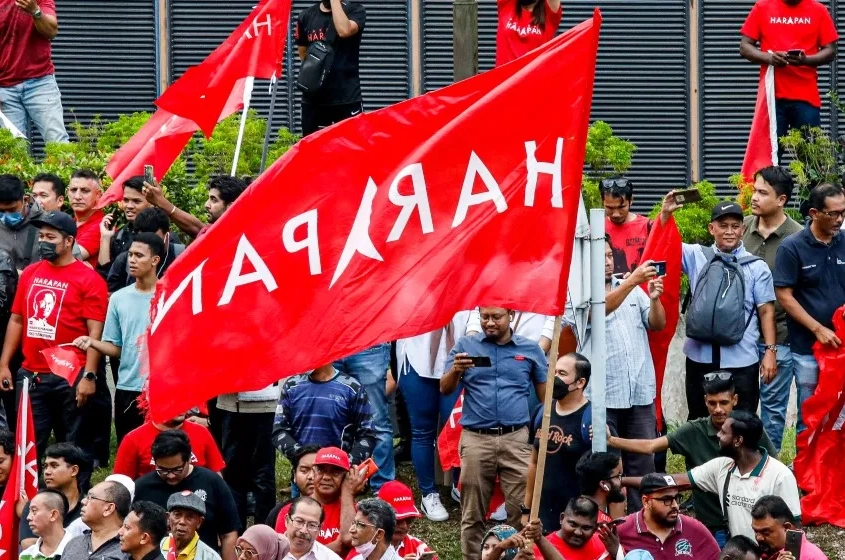Malaysia’s Racial Politics: Are We Stuck Forever, or Slowly Moving Forward?
Racial politics has shaped Malaysia since independence — sometimes protecting communities, sometimes dividing them, and sometimes holding the entire nation back. Today, many Malaysians feel trapped in the same old cycle: every issue becomes racialized, every election becomes a contest of fear, and every political message is targeted at specific ethnic groups.
But is Malaysia truly stuck forever? Or, despite all the noise, is the country slowly moving toward something better?
The answer is complicated — but not hopeless.
1. Race-Based Parties Still Dominate — Because Fear Still Works
UMNO, PAS, MCA, MIC, and many others built their political identity on race. Even multi-racial parties still rely heavily on racial sentiments to win votes in certain areas.
Why?
Because fear is an effective political tool.
-
Malays fear losing rights or dominance.
-
Chinese fear unfair treatment or economic decline.
-
Indians fear marginalization and neglect.
-
Others fear being left out of national policies entirely.
Politicians understand this deeply.
That’s why even minor issues — school syllabuses, housing quotas, language, scholarships — become “racial topics” overnight.
When fear drives voting patterns, race-based politics remains profitable.
2. Yet Despite the Loud Voices, Most Malaysians Actually Want the Same Things
One of the quiet truths in Malaysia is this:
Malaysians of all races want 90% the same things.
Ask any ordinary person — Malay, Chinese, Indian, Kadazan, Iban — and the priority list is almost identical:
-
a stable income
-
safe neighborhoods
-
quality education for their children
-
affordable food
-
a functioning healthcare system
-
fair treatment
-
accountable leadership
These universal concerns don’t get enough attention because politicians often amplify the 10% differences instead of the 90% similarities.
3. The Younger Generation Is Breaking the Pattern
Gen Z and younger millennials may be Malaysia’s best hope for progress — though they are not perfect.
What’s changing:
-
They are less loyal to old racial parties.
-
They care less about racial narratives and more about opportunities.
-
They judge candidates based on competence, not ethnicity.
-
Many grew up in multicultural schools and workplaces.
-
They are heavily influenced by global culture rather than old political narratives.
However, social media also makes them more emotional and reactive — which can either push towards unity, or fuel new forms of extremism.
Still, the generational shift is real.
4. Economic Pressure Is Slowly Making Racial Politics Less Effective
People don’t care what race their politicians are when:
-
the price of eggs keeps rising,
-
the ringgit hits a new low,
-
housing becomes unaffordable,
-
jobs don’t pay enough,
-
and the cost of living eats into their savings.
Economic pain can force society to rethink priorities.
The message becomes:
“I don’t care if you’re Malay, Chinese, or Indian — can you actually solve my problems?”
This is a healthy pressure that pushes politics toward practical solutions instead of racial rhetoric.
5. Sabah and Sarawak Are Models of a More Mature Multicultural Politics
Compared to Peninsular Malaysia, Sabah and Sarawak often display a healthier multicultural environment:
-
interracial marriages are common
-
political parties are more multi-ethnic
-
racial tension is lower
-
national policies can’t simply be applied without negotiation
-
local identity is stronger than racial identity
If Malaysia ever moves beyond racial politics, it may be because the East Malaysian mindset spreads westward.
6. So, Are We Stuck or Moving Forward?
The honest answer: Both.
Stuck, because:
-
Race-based parties still dominate the system.
-
Politicians still use fear to secure their base.
-
Social media makes extreme voices louder than moderate ones.
-
Policy frameworks still include racial components.
Moving forward, because:
-
Younger Malaysians reject old narratives.
-
Urban voters are increasingly multiracial in mindset.
-
Economic challenges force people to prioritize competence over race.
-
Sabah and Sarawak influence national politics more than before.
-
More Malaysians are openly discussing the need for reform.
Malaysia’s racial politics is like an old software — outdated, buggy, slow, but still running because the system depends on it.
However, a new generation is slowly installing an upgrade.
Conclusion: Change Will Be Slow, But It Will Come
Malaysia won’t become race-blind overnight.
The political structure is too entrenched, and fear-based narratives too profitable for certain groups.
But the seeds of change are already planted:
-
More Malaysians want fairness, not favoritism.
-
More youths question racial narratives.
-
More professionals are tired of political drama.
-
More voters demand competent leaders.
Malaysia is not fully moving forward yet — but it is moving.
And that alone matters.
Related articles:
1. Malaysia Politics Today: A Country That Wants Stability, but Keeps Getting Drama
2. The Legacy of Mahathir’s Policies: The Cost of National Unity
3. The Dangers of PAS’s Religious Political Agenda: Malaysia at a Crossroads
4. The Grave Dangers of Merging Politics and Religion: A Fatal Threat to Pluralistic Societies
5. Those who always use race and religion issues to seek political gains are morally corrupt leaders

